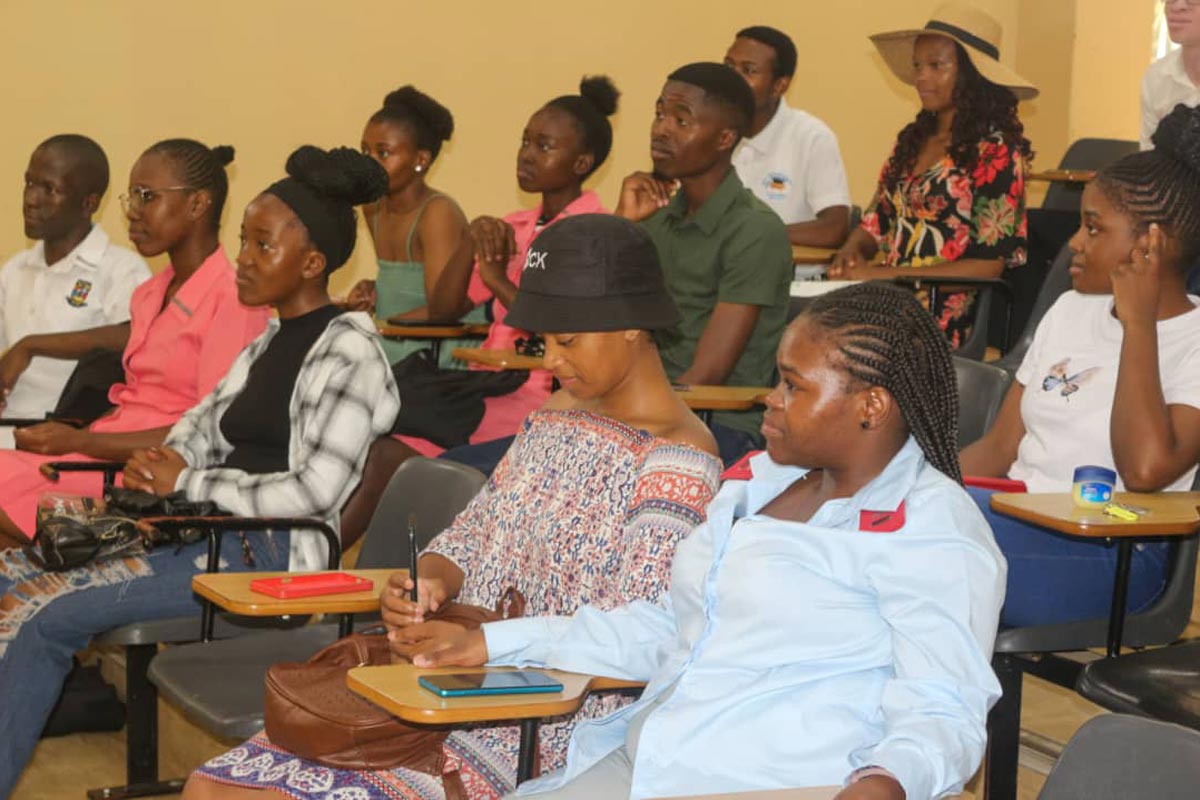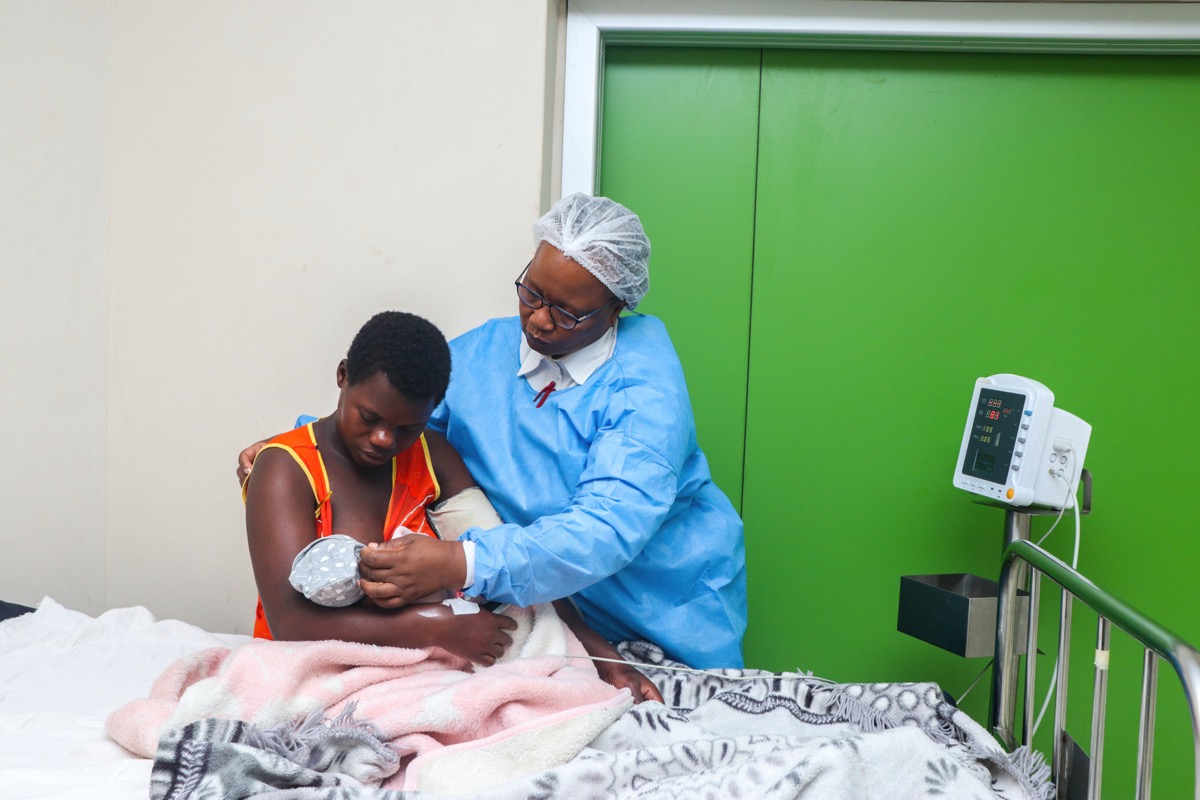De-witched: battling magic, misinformation and measles in Eswatini
From the frontlines of a nationwide measles campaign, a veteran nurse explains how a dose of fact is the best inoculation against baseless alarmism.
- 21 October 2025
- 5 min read
- by Nokukhanya Musi–Aimienoho
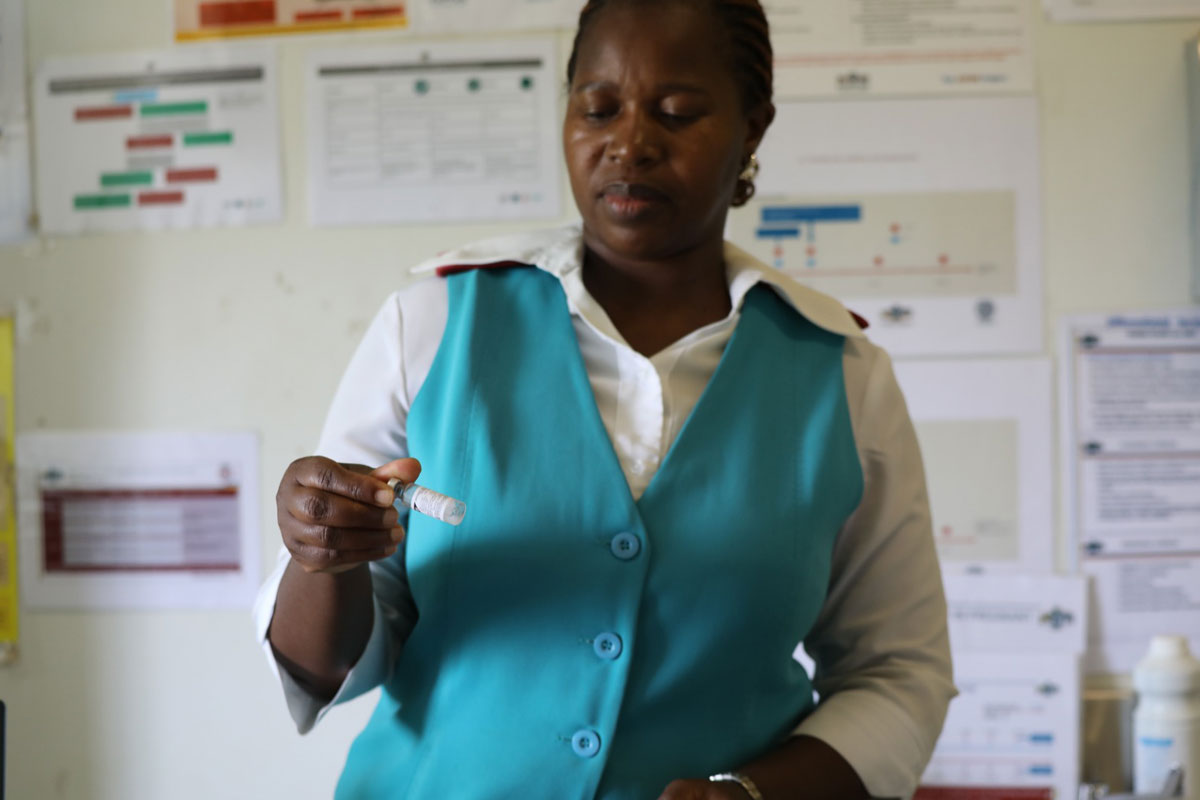
Sister Thuli Magagula doesn’t believe in magic – and yet, she knows for a fact that witchcraft can be mortally dangerous.
In communities like Macetjeni, in Eswatini’s eastern lowveld, where Magagula grew up, supernatural explanations for disease were, and continue to be, commonplace.
Those captivating stories, she realised after she matriculated at nursing school, concealed the realities of preventable, treatable illnesses. By clouding popular understandings of disease, witchcraft – or rather, its mythic shadow – was leaving children’s lives at risk.
For close to 30 years now, the nurse and midwife been advocating against the kind misinformation that blames magical bad actors for symptoms brought on by pathogens.
“I witnessed first-hand how preventable diseases like measles, tetanus and polio affected children, as many families were losing their infants. Some of the children were said to have died from bewitching,” the 52-year-old sister and midwife recalls.
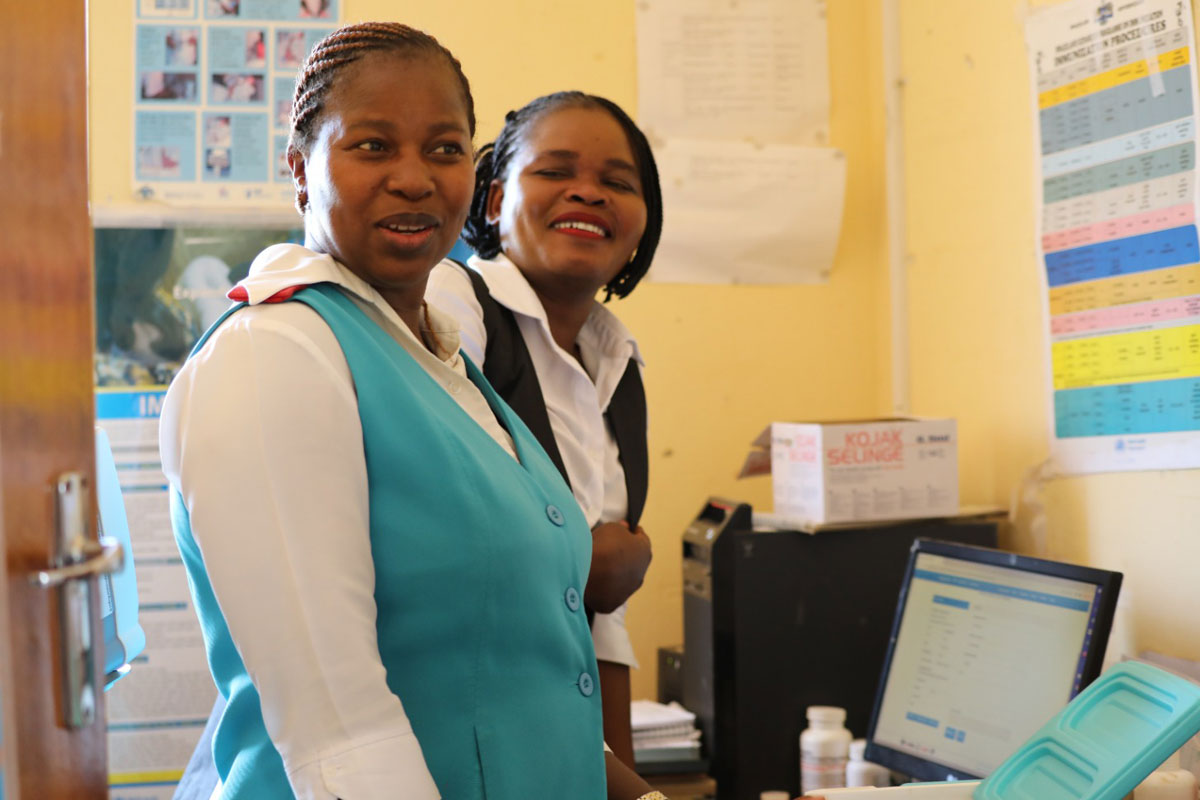
“I lost friends to measles when I was young. That experience ignited a fire in me to ensure no other child suffers the same fate,” she reveals.
Breaking the spell
Moved by her childhood experiences, Magagula was inspired to join Eswatini’s Expanded Programme on Immunization (EPI) after nursing school. She has dedicated her life to dispelling myths surrounding vaccinations.
“Meeting mothers who lost children due to these diseases that could have been prevented with vaccines strengthened my resolve to ensure that no family has to endure such a loss,” she says.
Now an EPI Immunization Officer, she plays a crucial role in delivering lifesaving vaccines to women and children across the country.
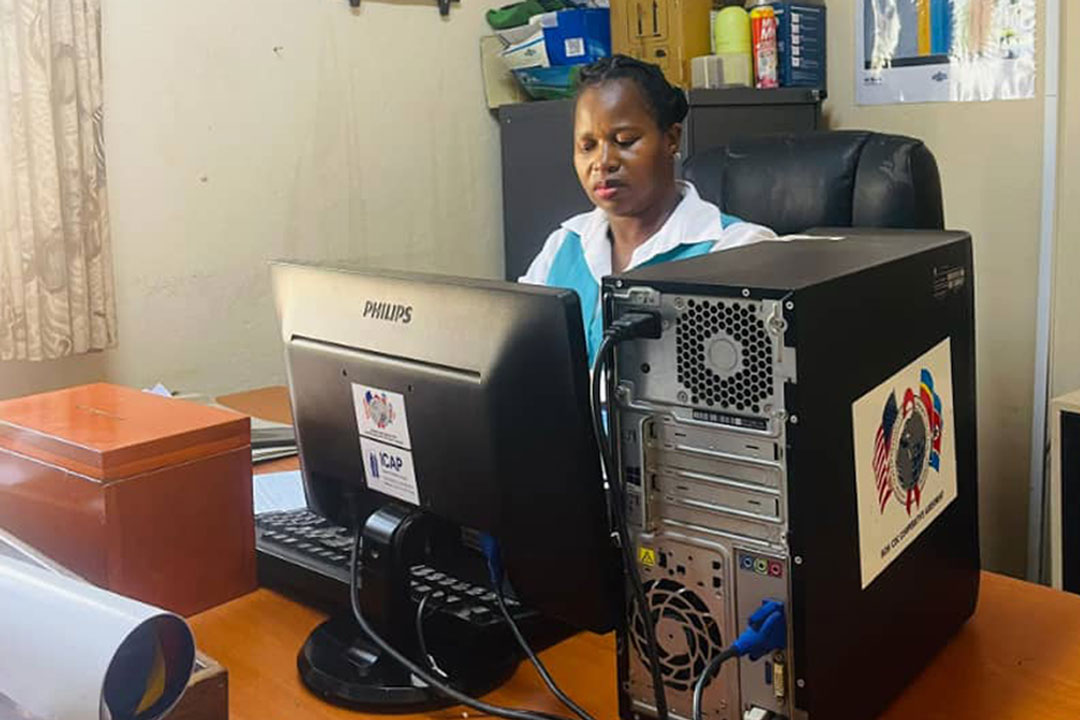
Her small office is adorned with images of smiling children and stacked with educational materials – a reminder of why she fights, and how. But most days she’s on the road, travelling to often-remote villages to vaccinate children, and it’s here that she believes she makes the biggest difference.
Measles looms
Eswatini has made strides in vaccination coverage in recent years – progress that can be heavily attributed to dedicated vaccinators like Magagula. But there’s further to go.
According to WHO and UNICEF immunisation data, coverage with the first dose of measles-containing vaccine has crept up steadily since a 2020 low of 76%, to hold steady at 85% since 2023. Coverage with the second dose of the measles vaccine, meanwhile, rose from 82% to 86% in the last year on record.
Have you read?
That’s encouraging, but well below the 95% threshold for herd immunity. And, as Deputy Director of the Ministry of Health Rejoice Nkambule points out, the threat of an outbreak has been alarmingly immediate. Neighbouring South Africa and Mozambique are currently battling epidemics of the highly contagious infection.
As Eswatini got ready to launch a nationwide measles-rubella vaccination campaign in mid-September to brace against impact, Magagula was on the frontline.
The myth-busting frontline
She says many of Eswatini’s under-vaccinated children are victims of misinformation. As part of a dedicated team, Magagula has been working to disseminate evidence-based, factual understandings of disease.
When she encounters the myths and rumours creating baseless fear in the community as part of her regular conversations with families, she debunks them with characteristic patience and warmth.
Bongekile Ndlovu, a 27-year-old single mother of two from the rural village of Nyakatfo, for instance, approached Magagula worried. Villagers had told her fantastical conspiracy theories about vaccination that had left her rattled. Magagula patiently explained that vaccines are scientifically formulated to prevent diseases and she shared testimonials on their safety.
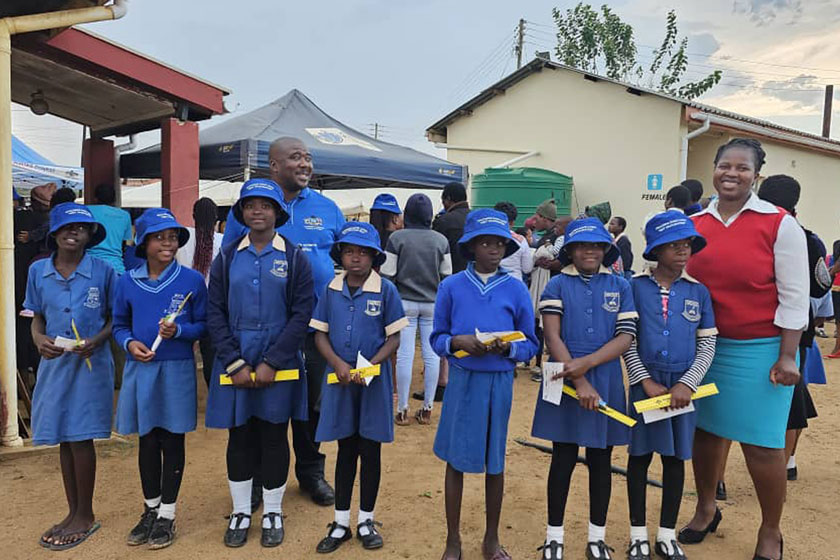
By the end of their conversation, the mother felt reassured and agreed to vaccinate her child. “After speaking with the nurse, I realised that vaccinations are not just about needles; they are a shield for my children against serious diseases. She helped me understand that protecting their health is the best choice I can make as a mother,” Ndlovu told VaccinesWork.
Well-trodden information pathways
The campaign recorded a milestone success, reaching about 87% of the target population, and shoring up the nation’s immune defences.
Nkambule acknowledges the vital role played by health workers like Magagula in making gains like these. “Their work is crucial in building rapport through community engagement and sensitisation. Health workers address misinformation and conduct home visits to ensure families understand the importance of vaccinations, and identify zero-dose and under-immunised children, linking them to the nearest facilities for essential health interventions,” she said.
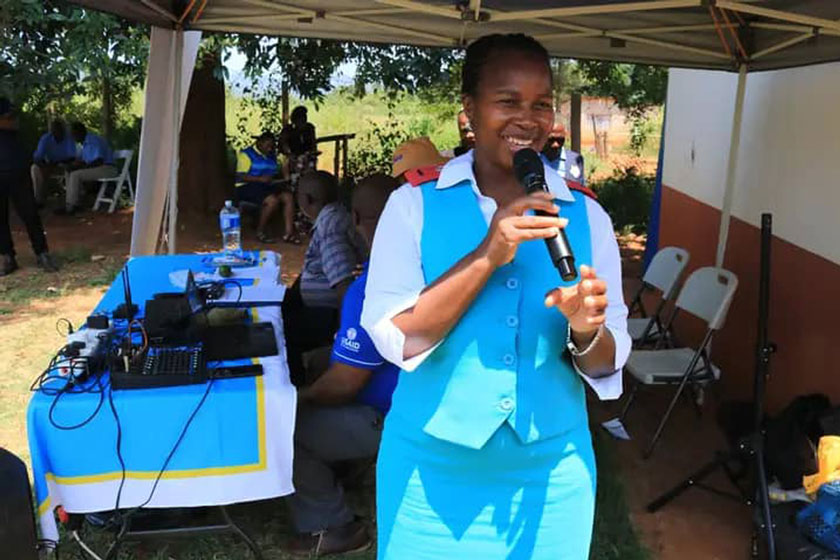
It’s far from magic – it’s slow and steady work forging strong connections with communities, traditional healers and rural health motivators like 45-year-old Phindile Thwala, and the only way to make sure that community information pathways are plied by evidence-based, reliable intel, instead of by myths and mysticism.
And often enough, explains Thwala, those information pathways are travelled physically, as well as figuratively. Thwala, who works closely with Magagula, notes a marked difference in vaccination turnout when she follows up with families in person. “Many people in remote areas don’t own radios or have access to updates about health services,” she explains.
That means that often enough, a knock at the door from a well-trained health worker like Magagula is the only opportunity a family has to learn the difference between fact and fable.
More from Nokukhanya Musi–Aimienoho
Recommended for you





